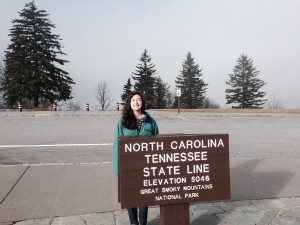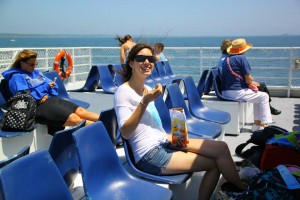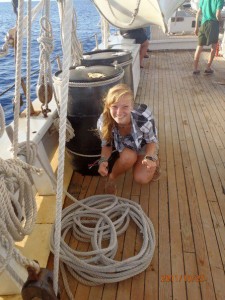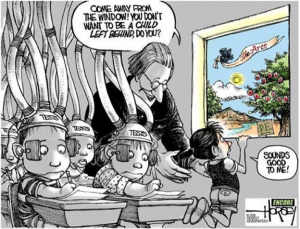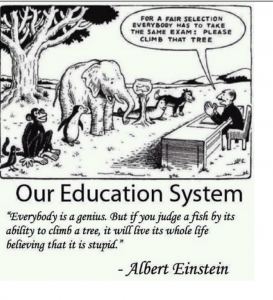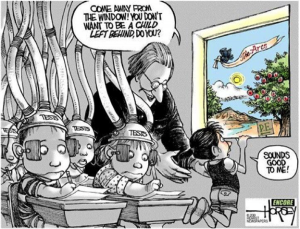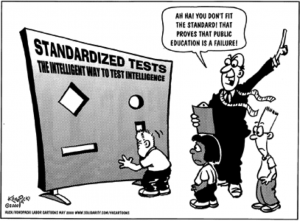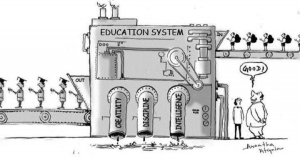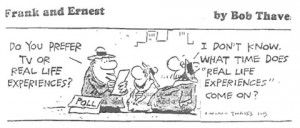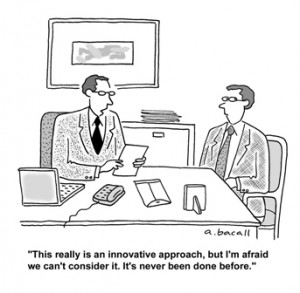We will be researching the effects experiential education can have on different age groups, and reasons why this form of learning is not accessible to all people. Experiential learning is the process by which one learns information through hands on experience—it connects them with their surrounding environment, gives them a sense of self-identity, and installs passion and appreciation for the natural world. The blog will address many types of experimental learning. It will include reconnecting children to the earth through schooling or camps, high schools including place-based education, how management plans of nature can foster experiential learning, and how this learning can raise awareness and increase conservation efforts. We also want to explore tensions to these opportunities due to socioeconomic, race, or locational differences. We hope that our research will prove the power that experiential learning has to heighten ones awareness and increase affection of the world. We hope readers of this blog will see the importance of including these programs in learning for all ages, and have a better understanding of how to increase the availability of them.
Meet The Bloggers:
Larissa Del Rosso Rayher
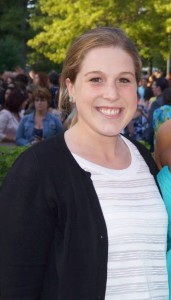
Larissa Del Rosso Rayher is a sophomore at University of Vermont majoring in Natural Resources:Resource Planning. She was born and raised in Saratoga, NY and enjoys many outdoor activities including skiing and hiking. Her passion for nature began when she was young and lived on a large property in the woods. She would explore the land she lived on for hours on end. Larissa feels that elementary schools should include a curriculum that brings children out into nature-instilling creativity and love for the world around them. Giving all children the opportunities for exploration that Larissa had would cause affection for the land and a desire to preserve what land has to offer. She hopes this blog will point out why it is important for education to be hands on in an outdoor setting, and show ways that experimental learning can be included in education at all levels.
Chloe Bates
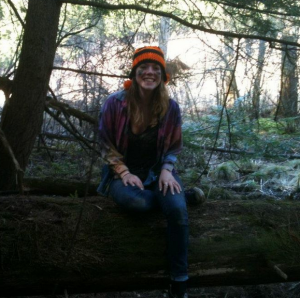
Chloe Bates is a junior at the University of Vermont studying Forestry with a minor in Communities and Conservation. Although not planning on joining the Forest Service or being a forester, her college studies have allowed her to pursue a more holistic understanding of the natural world. In the Summer of 2013 she worked in the woods of Vermont on a trail crew and in the Fall spent an intensive field semester in Montana studying conservation sciences. The ability to learn outdoors and hands-on has inspired her explore the possibilities of experiential education in the realms of wildlife, plant communities, and throughout all age groups.
Jackie Pagano
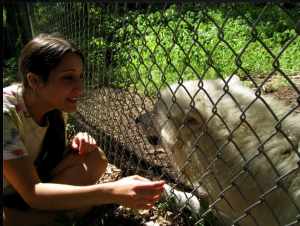
Jackie Pagano is a junior at the University of Vermont studying Wildlife Biology. She was born and raised in Fairfield, CT, which did not play any role in the birthplace of her interests. In 2011, Jackie had her first experience at a wolf conservation, where she got to see the process of experiential education through a conservation. This perpetuated her hope to pursue a career path in wolf conservation. She is mostly interested in the process of experiential education in regards to animal conservation. She believes that exposing children to endangered animals sets the stage for admiration and helps perpetuate the upcoming generation to want to protect species who need help.
Sam Humes
Samantha Humes is a junior forestry major and wildlife biology minor at the University of Vermont. Her hometown is Pomfret, Connecticut, which is located in the northeastern part of the state nicknamed the “quiet corner” for its abundance of state forests and farmland. Being submerged in that lifestyle made her unappreciative of its beauty until she began studying forestry to realize how rare and important nature is. During her Small Woodland Management course, she discovered the program Foresters for the Birds that works to connect landowners and their foresters to the birds that inhabit their land. The experiences they have sparks their interest in their forests and drives them to manage their woods with the birds in mind.
Colleen Iral
My name is Colleen Iral and I am a sophomore in the Rubinstein School designing my own major, which will revolve centrally around the ideas of community, sustainability and agriculture. I call Yorktown, New York my home now but in fact I have lived in many different places across the US. Since I was young nature and the passion for the environment I feel today have been ingrained in my life by my parents. My work in recent years with at risk youth has made me realize the need in this part of the community and I feel that experiential education has a role to play in their help. The connection to the environment gained though experiential education has the power to heal at risk youth and my purpose in this blog is to show that.
Michelle DesLauriers
Michelle DesLauriers is a sophomore at the University of Vermont studying Environmental Sciences. Although she is originally from Chicopee, Massachusetts, she spent her high school years living in Andover, New Hampshire while attending boarding school at Proctor Academy. During her time at Proctor, she was provided with a nontraditional and experiential education. In addition to forming an intimate attachment to New Hampshire’s natural landscape while taking courses in Community Ecology and Forestry, she was able to spend a trimester studying at sea on Ocean Classroom. She discovered her passions through such interactive learning experiences, and has developed a profound appreciation for experiential education and its potential to foster positive environmental attitudes.
Sam Clerkin
Sam Clerkin is a sophomore at the University of Vermont studying Resource Ecology through the Rubenstein School. Sam is from Hanover, New Hampshire where she attended Hanover High School, a close-knit community that prides itself in offering experiential opportunities to students. Sam first became interested in studying experiential education when she became a camp counselor and saw first hand the positive effects that time spent learning outdoors or somewhere other than the traditional classroom setting. Sam hopes to investigate the barriers that keep experiential education at its current level of availability and how to make it more accessible to a wider demographic.
“I HEAR AND I FORGET
I SEE AND I REMEMBER
I DO AND I UNDERSTAND”
-Confucius
“The knowledge of the world is only to be acquired in the world, and not in a closet.”
-Lord Phillip Dormer Stanhope Chesterfield
“Experiential education is elusive, often paradoxical, a multifaceted jewel with ethical, aesthetic, spiritual, physical social and psychological dimensions, even cosmic dimensions. Psychological mountain climbing may be the right phrase for what we mean by experiential education.”
-John Huie
It is little short of a miracle that modern methods of instruction have not completely strangled the holy curiosity of inquiry.”
– Albert Einstein
“What we do, if we are successful, is to stir interest in the matter at hand, awaken enthusiasm for it, arouse a curiosity, kindle a feeling, fire up the imagination–and now she who is exposed in this fashion goes on her own way, I owe a great and lasting debt.”
– Professor Julius Sumner Miller
Education has produced a vast population able to read but unable to distinguish what is worth reading.
– G. M. Trevelyan
